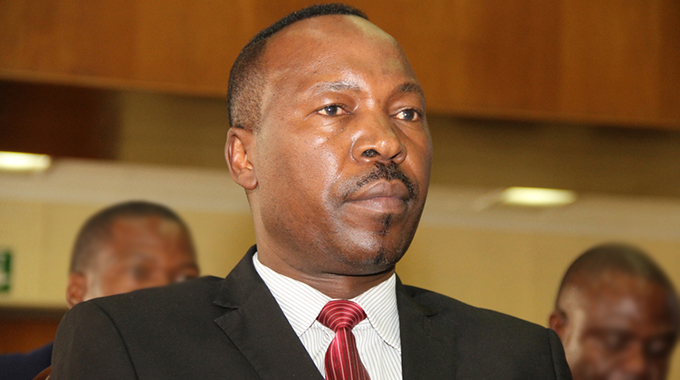UPDATED: ED speaks on local currency

Elita Chikwati in VICTORIA FALLS and Africa Moyo in HARARE
President Mnangagwa has thrown his weight behind the scrapping of the multi-currency system and adoption of a single domestic transactional unit, explaining the development will help the economy to grow out of the bog of the previous regime.
Further, the President said conditions for the introduction of a new currency are in place as key fundamentals such as decreased spending, increased revenues and budget surpluses, have been achieved through sweeping reforms embarked upon since October last year.
He said the use of multiple currencies since 2009, denied the country control of monetary policy and left the economy at the mercy of US dollar pricing, which brought inflation.
Addressing journalists on the sidelines of the African Union – United Nations Wildlife Economy Summit in Victoria Falls yesterday, President Mnangagwa said Government has not banned possession of foreign currency, but its use for domestic transactions, buttressing the policy announced by fiscal and monetary authorities on Monday.
He also said by having its own currency, the country has returned to “normalcy”.
“Zimbabwe has gone back to normalcy; the normalcy is the country must have its own currency. We have been living in an abnormal situation.
“We have removed a basket of currencies we had. Our currency is denominated by coins, notes and RTGS, all that is domestic currency and can be used for (local) transactions,” he said.
President Mnangagwa said those with foreign currency would have to exchange for the Zimbabwe dollar at bureaux de change for them to transact, while foreigners could still bring their Visa cards and swipe.
“Nothing much has happened. We have normalised. We shall continue to have pronouncements to inform people. What is critical is . . . ukavona tofamba zvinenge zvagadzirika,” he said.
On Monday, Government removed the multi-currency regime and restricted domestic transactions to the local currency, the Zimbabwe dollar, to enhance the affordability of goods and services by the majority.
The currency reforms were done through Statutory Instrument 142 of 2019.
Government took the route on realising that the market was choosing to price most goods and services in US dollars when the majority of citizens were earning the local unit.
Posting on his Twitter handle yesterday, President Mnangagwa conceded economic growth remained a mirage, hence the need to introduce a local currency.
“It has always been clear that for our economy to truly take-off, we need our own currency. While the multi-currency regime helped to stabilise the economy, it did not give us control of monetary policy and left us at the mercy of US dollar pricing which has been a root cause of inflation.
“When the majority earn in the local unit, but goods are priced in US dollars, the outcome will only ever be a two-tiered economy: stable and affordable prices for those with access to (US) dollars, while the majority face an unrealistically high cost of living. This is unfair and unsustainable,” said President Mnangagwa.
He explained that before the introduction of a local currency, it was important that “key fundamentals” were first put in place.
“Central to this was regaining control of our budget through decreased spending, increased revenues and, for the first time in recent memory, budget surpluses.
“Under the careful guidance of (Finance Minister) Professor (Mthuli) Ncube, this has been achieved. As a result, yesterday (Monday) we passed a Statutory Instrument to abolish the use of multiple currencies, and make the Zimbabwe dollar the sole legal tender with immediate effect.
“This is a key component of our Transitional Stabilisation Programme, and an important step in restoring normalcy to our economy. Government and the RBZ are taking the necessary steps to ensure this move is a success, through increasing the flow of forex into the interbank market while also making forex available to individuals and small businesses through bureau de changes,” said President Mnangagwa.
Apart from increasing efficiency of the interbank, the RBZ has put in place letters of credit (LCs) amounting to US$330 million for importation of critical commodities such as fuel, cooking oil and wheat, to buttressing removal of the multi-currency system.
The central bank has also directed banks to transfer to it, the RTGS$/ZWL$s they are holding as counterpart funds for the foreign currency historical or legacy debt that Government, through the Reserve Bank, is assuming at the rate of 1: 1 between the RTGS$ and the US$.
This measure is set to mop up about ZLW$1,2 billion from the market by end of this week.
The interest rate on the RBZ overnight window has also been increased to 50 percent per year from the current 15 percent, to cushion bankers from the vagaries of inflation.
President Mnangagwa reiterated yesterday that on a day-to-day basis, SI 142 of 2019 will “change very little” as people will still be paid in RTGS dollar and bond notes, while goods and services will be priced in that currency.
“Those holding Nostro (foreign currency) accounts will still have access to those accounts in the currency they held,” he said, adding that the only way forward is to reform so as to build a country in which “all have the opportunity to prosper”.
“We cannot be fearful of change, but must boldly embrace it as we move forward. The conditions are in place for Zimbabwe to have its own currency.
“Let us work together, as one people, to make it a success,” he said.
The reforms appeared to have an immediate positive impact as forex parallel market rates tumbled on low demand as citizens can now purchase products in the local currency.
Before the intervention, US dollar prices were ridiculously lower that local currency prices, a move that pushed consumers to the parallel market to buy forex.











Comments